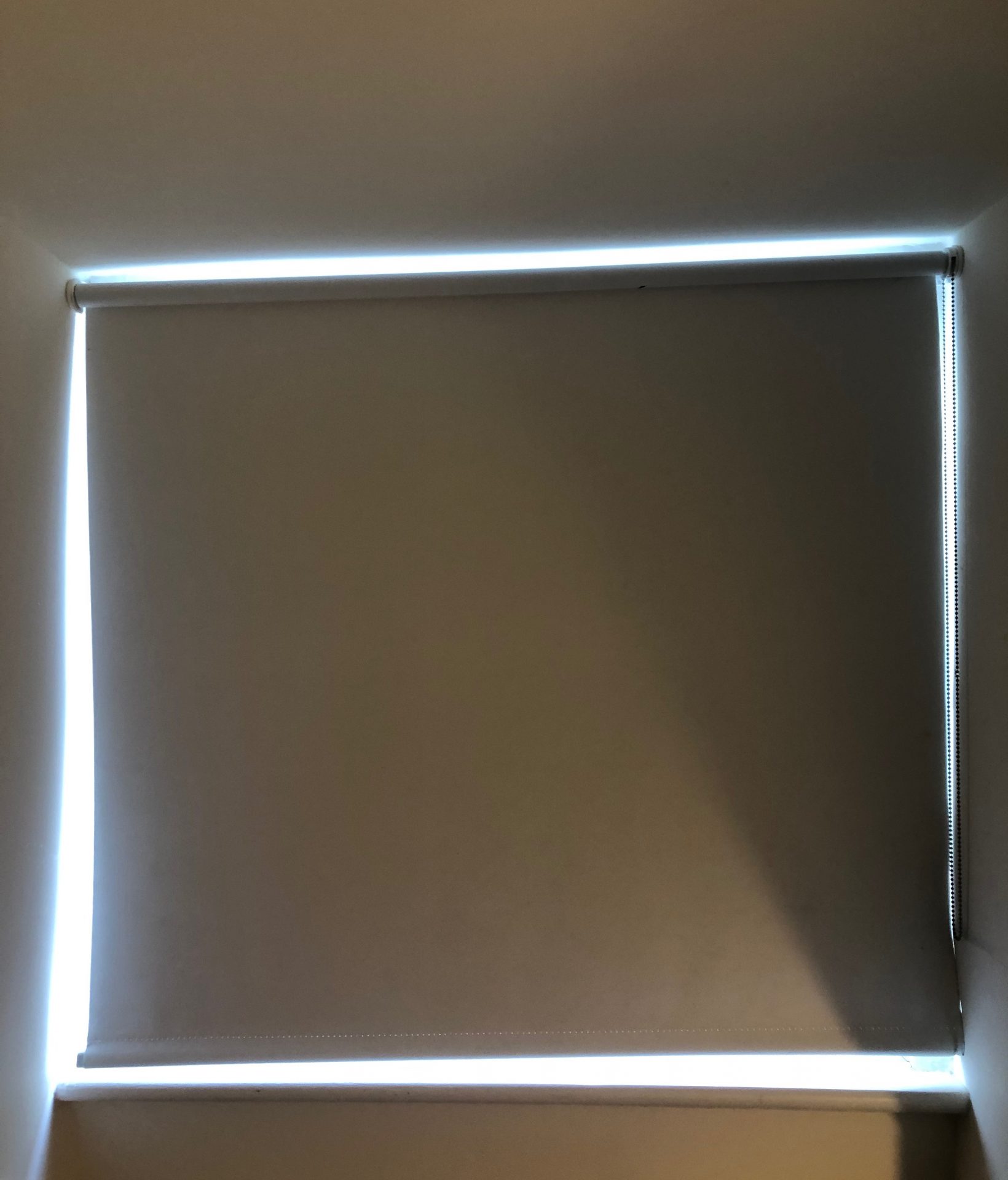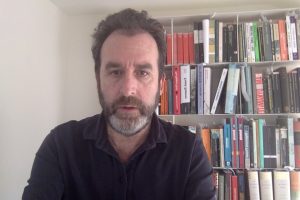
There is no tree
I like to be on the top floor back, but I do not need a view. There is a lamp on the desk to my right, a bare white wall in front of me, a shelf of books to the left containing texts that I might want to refer to or just because they feel lucky to the thing I’m working on. Towards the end of a project, like now (this is how I measure time), there will be some pages of lists stuck to the wall. If I look over my right shoulder there’s a small painting of an office desk and chair in a brown basement room filled with boxes. The window to my left has its blind pulled down. Behind me are objects that are unseen and therefore immaterial.
I had been intending close description, the colour of the anglepoise, which is a chalkier shade of white than the wall, but this has brought to mind Christopher, who I knew long ago. I was working for a home tutoring agency, my qualifications being that I had a degree, was plausibly spoken, and had agreed to help out with admin once a month. Christopher was thirteen and had recently arrived from Ghana and when he heard his new teachers say that anyone who didn’t understand something should put up their hand and ask he had believed them. The foreignness of his accent along with his repeated questions had led his teachers to recommend that he be sent to a school for children with learning difficulties. His mother requested a second opinion from the tutoring agency, who sent me, because I was the one on their books who lived nearest to his estate.
For his first week’s homework I asked him to write ‘The View Outside My Window’, and when he showed me what he had done, I had to criticise it because, despite the elegant fluency of his prose, it wasn’t accurate. Look Christopher, I said. There is no tree, there are no young people enjoying themselves at play, there is no couple holding hands by the stream, because there is no stream, there is no tree, the young people are not enjoying themselves, there is only a narrow rectangle of paved ground between tower blocks, nothing visible grows there, no birds are singing, mute those colours, have another try Christopher. The following week, he sent us to the eighteenth century, into a complicated plot about the siege of a Huguenot city, where the besiegers were in league with the rich merchants of the town who were putting up the price of grain, except an uprising within the city, led by a young man modestly called by his first initial C., overpowered the merchants and their henchmen and released the grain and fed the city and, their energies renewed, the citizens overcame the besiegers, and C. melted quietly back into civilian life in the new, free dispensation. And yes Christopher, I see this. He mentioned, as a note of apology, that he had taken some of the background from a Victor Hugo novel and I said that was fine, he’d made it his own, and I reported to his mother that she should continue to resist him being sent to a school for children with learning difficulties. Instead, they might want to be thinking into the future, towards university and all kinds of possibilities. I taught Christopher for a year until I moved away and we lost touch, but he’s somewhere there behind me, in that immaterial part of that room, one of those boxes in the brown painting, or flickering in the blind.
 David Flusfeder writes fiction and narrative non-fiction, and teaches Creative Writing at the University of Kent.
David Flusfeder writes fiction and narrative non-fiction, and teaches Creative Writing at the University of Kent.